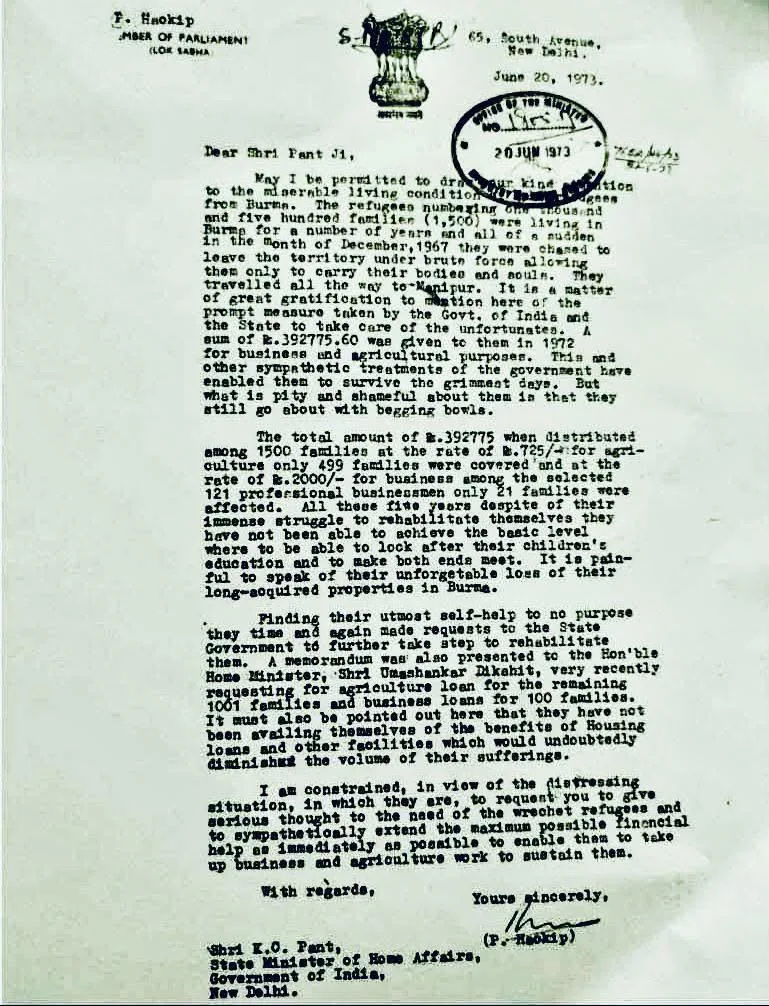IMPHAL, April 2: Former Manipur Chief Minister N. Biren Singh has sparked fresh debates over refugee settlements in the state, asserting that Manipur’s demographic transformation has been engineered over decades through the systematic settlement of thousands of refugees. He raised concerns about the long-term impact on the state’s social fabric and identity, calling for an open discussion on the issue.
In a post on his X handle, Singh questioned whether Manipur had been treated as a “dumping ground” for refugees from the very beginning. He highlighted historical records indicating that refugee settlements in the state date back to the late 1960s and early 70s, with official documents confirming the presence of over 1,500 refugee families before Manipur attained full statehood.
One key piece of evidence cited by Singh is a letter written by Paokai Haokip, then Member of Parliament from Manipur, to Shri K.C. Pant, Minister of State for Home Affairs. The letter explicitly acknowledged that over 1,500 refugee families had already been settled in Manipur by 1967. “His correspondence is just one among several that confirm how deeply rooted and long-standing this issue is,” Singh said.

The former chief minister raised critical questions about the fate of these families. “What happened to those families? How were they integrated? How many generations have grown since then?” He lamented that these questions have never been fully addressed in public discourse, even as Manipur’s demographic structure has evolved over the years.
He also called for scrutiny over the legal mechanisms surrounding the refugee settlements. “It’s important to ask whether there were legal mechanisms in place to ensure these individuals remained in refugee status. Were they eventually granted full rights? Were they added to electoral rolls? Were they extended benefits meant for indigenous communities?” Singh questioned, arguing that these are not minor concerns but issues that affect the state’s identity, social balance, and future trajectory.
Singh further criticized the backlash faced by those who raise such concerns. “The moment the issue is mentioned, labels are quickly thrown around. Ironically, had we stayed silent, we might have been seen as agreeable or unproblematic,” he remarked.
“Silence is no longer an option. We cannot afford to watch as a historical issue with far-reaching consequences continues to shape our present and future. It is time to revisit this chapter—not to assign blame, but to understand its implications and chart a fair and balanced path forward,” Singh asserted.
Drawing from his experience in politics and governance, Singh emphasized the responsibility of leaders to stand by facts rather than follow popular sentiment. “We owe it to our people to be truthful, defend their dignity, and remain forward-looking. That’s what it means to be a statesman, not just a politician,” he concluded.

